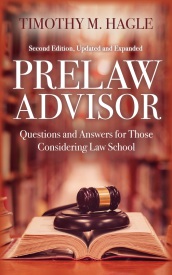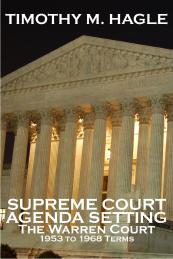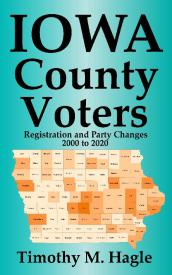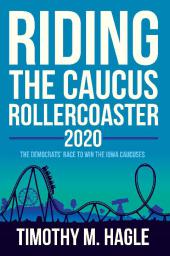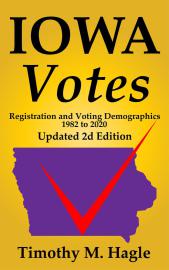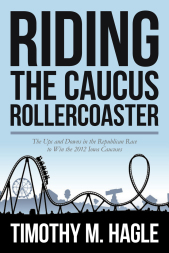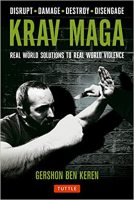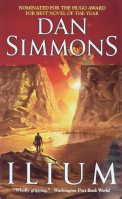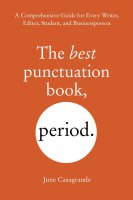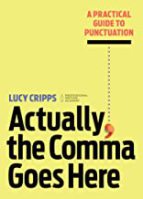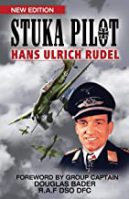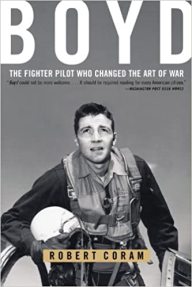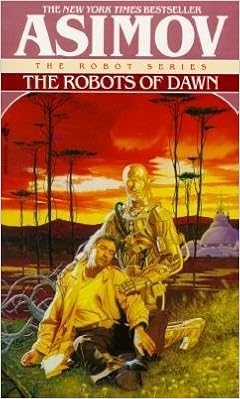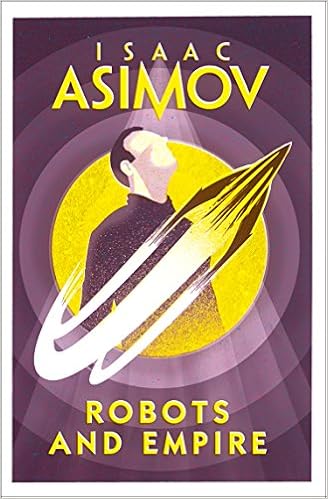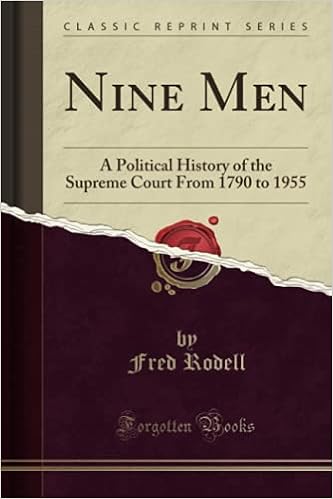
Contact Info
347 Schaeffer Hall
319-335-2348
timothy-hagle@uiowa.edu
Twitter: @ProfHagle
Fall 2024 Office Hours
Tue & Th: 4:45-6:15
Mailing Address
Dept of Political Science
341 Schaeffer Hall
20 E. Washington Street
The University of Iowa
Iowa City, Iowa 52242
News
Posted updated Prelaw FAQ for UI students
New Book, Riding the Caucus Rollercoaster 2024, published in paperback and for Kindle devices.
Posted updates to 12 papers in Iowa Voting Series for 2022 election data
New Book, Supreme Court Agenda Setting: The Warren Court, published for Kindle devices and computers with Kindle reader.
Published updated and expanded edition of Prelaw Advisor in paperback and for Kindle readers
My books
What I'm Reading
I'm sometimes asked what I'm reading for alumni newsletters or biographical pieces. I used to read a lot of science fiction, but these days it tends to be more along the lines of political non-fiction. I'm now just adding books as I read them.
Note: I installed PC Matic and noticed that the widgets to display book links don't appear. So it seems if you have PC Matic and want to see the links you'll need to turn the program off for this site.
Krav Maga, by Gershon Ben Keren. Krav Maga is fairly well known as a fighting technique used by the Israeli Defense Forces. It’s probably considered by many to be a self-defense method, but the author notes it’s also a method of offense. I wanted to learn a bit more about it, so picked up this book. Right at the start the author notes that a key to Krav Maga is practice. A fundamental point is that you are able to use the techniques in the book in surprise situations, without having to think about them. That takes practice. It’s practice you won’t get from looking at the many pictures in the book along with the detailed descriptions. This reminded me of some funny videos on the internet of people basically using these or similar techniques to disarm someone and ending up in heaven. In other words, they ended up dead instead of being able to take a gun away from someone. An interesting book, but you would have to take a course of some sort to really learn the techniques.
Ilium, by Dan Simmons. This book was nominated for a Hugo award and I had read another of his books long ago so I thought I’d give it a try. The book was fairly long at over 700 pages. The chapters rotate between telling three different stories. There didn’t seem to be any connection between the stories until page 200. Even then it was minimal for another couple of hundred pages. Two of the threads had a science fiction theme. The third was mostly about the Trojan War (with minimal connections to SF). The detail in the Trojan War chapters didn’t seem to have any purpose in terms of advancing the story and I started skimming or skipping them all together. It all more or less came together at the end, but we were left at the point where something important was about to happen. Unfortunately, that something was going to be in the next book. I will not be reading the next book. Two of the three threads were interesting, but breaking them up and including the third which seemed to be overly detailed, just didn’t do it for me.
The best punctuation book, period. by June Casagrande. Yep, another book on punctuation. This book's approach was particularly interesting. Rather than just indicating how it should be done, the author recognized that different types of writing may require different styles in particular situations. She broke the styles into four types: book-editing, news and business writing, science, and academic. Although there are many times when the four styles require the same punctuation rules, other times they diverge. This is actually consistent with one of the things I tell my students. In particular, I tell them they need to be sufficiently aware of their writing and flexible with it so they can conform to whatever a particular audience (e.g., a boss, a professor) wants of them. On the other hand, having several choices can make things a bit more confusing. Partly to address such possible confusion, the book also contains a large section showing how specific items are dealt with. On the whole I liked this book, but it might be better to get comfortable with the basics elsewhere before trying to deal with how different styles are handled.
Actually, the Comma Goes Here by Lucy Cripps. Yes, I read books on grammar and punctuation. I title of this one grabbed me because I know I have a tendency to overuse commas. Of course, the book isn't just about commas, but punctuation more generally. The book doesn't contain much in the way of new information, but provides examples and tries to make its points in a fairly humorous way. (That was okay, but I liked the similar approach used by Karen Elizabeth Gorden in her books The New Well-Tempered Sentence and The Deluxe Transitive Vampire.) Still, this is a small book and quick read. At the very least it can provide a nice refresher.
Stuka Pilot by Hans Ulrich Rudel. This book was mentioned in Boyd as being liked by one of Boyd's followers so I thought I'd give it a try. Reading a book by a Nazi pilot from World War II wouldn't ordinarily be of interest, but he had an amazing flying record and spent his time on the Eastern Front fighting the "Ivans." The book turned out to be relatively interesting, but didn't contain detailed information about flying or how Rudel achieved such success. It was interesting to the extent that Rudel was pretty matter of fact about what was happening. The book ready mostly like diary entries that a soldier might have sent home; not too detailed, just covering the basics.
Boyd: The Fighter Pilot Who Changed the Art of War by Robert Coram. I didn't have this book in my "to read" stack for all that long but I still don't recall where I saw it recommended. Regardless, it turned out to be a very interesting book. As much as Boyd was an excellent fighter pilot his importance and legacy was how he built on his experience to improve both the planes being used and the tactics for using them. Given that I study public administration, I found the difficulty Boyd had in getting changes made particularly interesting. Making changes in a large and entrenched bureaucracy is extremely difficult. People have long known about entrenched interests in the Pentagon and Defense Department. Part of that is simply bureaucratic inertia. Those interests made it particularly difficult for Boyd to get changes made. How he did so, even at great personal cost, might provide lessons to be applied in other areas. The book didn't dwell too much on the specifics of Boyd's proposals, so those not well versed in fighter tactics and air warfare won't be lost in technical reading. This is basically the story of a very dedicated and persistent man who worked very hard to make improvements in the system. I enjoyed this book very much and am happy to recommend it.
The Robots of Dawn and Robots and Empire by Isaac Asimov. I first read these two books when they were initially published in the mid 1980s. Given "Robots" in the titles it's no surprise that they are a continuation of his robot novels. The Robots of Dawn takes place only a couple of years after the prior robot novels and again has Elijah Baley asked to solve a murder mystery with the help of his sometime partner Daneel Olivaw. The twist is that victim is the only other humaniform robot. Two things make this story particularly interesting. The first is the introduction of a more traditional robot that has certain additional abilities. The second is that this story plants the seeds to connect the robot series with the Foundation/Galactic Empire series.
Robots and Empire takes place about 200 years after the events of The Robots of Dawn. That means that Elijah Baley is long dead. Nevertheless, he appears in the story via flashbacks and memories of the characters. Daneel Olivaw and the robot with special abilities, Giskard, are main characters. So too is Gladia, the long-lived Spacer who was important in two of the prior books. Unlike the previous three robot novels this one isn't a murder mystery. The basic story involved a plot to destroy Earth and the efforts of Gladia and the robots to discover and stop it. The seeds planted in the prior book are starting to germinate and Asimov does more to make the connection between what's happening here to the establishment of psychohistory and the Galactic Empire.
I was a little surprised at how little I remembered of the specificis of these books even though I first read them some 35 years ago. Even so, they are enjoyable stories and I look forward to rereading the remaining three books in the Foundation series.
Supreme Disorder: Judicial Nominations and the Politics of America's Highest Court by Ilya Shapiro. I had this on my shelf for a little while when Shapiro became the subject of some controversy over something he tweeted about Biden's vow to only choose a black woman as his SCOTUS pick. Georgetown University's law school had just hired Shapiro as a lecturer and they immediately suspended him over the comments. Shapiro's book is about nominations to the Supreme Court, so I thought the timing was good to read it. (I also spend a lot of time in my Judicial Process course discussing SCOTUS nominations from Bork to the present.)
In his book, Shapiro walks through all the Supreme Court nominations from the establishment of the Court through the Kavanaugh confirmation hearings. Until the Bork nomination in the late 1980s, the descriptions are relatively short and highlight the politics played at the time. In that regard I was reminded of Fred Rodell's Nine Men, which is a political history of the Court through 1955. It was with the Bork nomination that the confirmation process changed and Shapiro spends more time on it and some others, such as those of Thomas and Kavanaugh. Part of his thesis is that as the role of the Court changed, selections to it became more imporant and, as a result, the confirmation battles changed as well. In addition to descriptions of the nominations and confirmation battles, Shapiro discusses some of the proposals offered to change the court, such as court-packing or term limits for the justices. On the whole, Shapiro does a good job of walking through the various nominations. In that regard it's a good resource for a quick look at how we got to where we are in terms of Supreme Court nominations and confirmations. I recommend this book and may very well list it as a recommended book for my course.
Yikes! Amazon is retiring the widgets used to link to books and such so I can't create any new ones (and all the old ones will apparently stop working as of 4/1/22). Until I figure out an alternative here are basic page links to the Shapiro and Rodell books. (Click on the book cover.)
Supreme Disorter by Ilya Shapiro
Nine Men by Fred Rodell
Jaqnuary 6: How Democrats Used the Capitol Protest to Launch a War on Terror Against the Political Right by Julie Kelly. I included the subtitle because it sums up what the book is about fairly well. Kelly is an independent journalist and political commentator who writes primarily for conservative outlets. She has focused much of her attention on what happened on January 6, 2021, and its aftermath. In this book she takes a look at different aspects of the events in each of the chapters. This includes what happened to Officer Brian Sicknick, the killing of Ashli Babbitt, the FBI's role in events, the conditions of those being held for their participation, and so on. Kelly works to deconstruct false narratives about the events and provide more factual information. This is obviously an extremely politicized topic. Those on the left will reject most if not all of what Kelly reports, but she raises important questions about what occurred.
Foundation's Edge by Isaac Asimov. I decided to keep reading science fiction and Asimov. There are lists available online that reccommend the order in which to read the robot and Foundation novels so they are chronological in terms of the future history, but I decided to just reread them in the order they were published (and in which I originally read them). Foudation's Edge is the fourth novel in the Foundation series. Unlike the prior three books this one is longer and has a more traditional structure. By that I mean that Asimov tells the story from the perspective of different sets of people who eventually come together for a resolution. It surprises me somewhat that I really haven't remembered many of the details of these books despite having read them a couple of times before (though a long time ago). I suppose that actually makes them more enjoyable as it makes it a bit more like reading them for the first time. In any case, this is certainly another good read from Asimov. As mentioned below, you can buy this book individually or as part of a set. Links for both are below.
The Caves of Steel, The Naked Sun by Isaac Asimov. These are the first of Asimov’s robot novels. Like the Foundation Trilogy these were written in the 1950s so aspects may seem a bit quaint by our standards. Even so, the key to these books is how the main character, policeman Elijah Baley, reacts to his new partner, robot Daneel Olivaw, while solving a murder case. The basic concept of uneasy partners on a mission has been copied many times, but at its heart the first book is a murder mystery in the context of an Earth where no one goes outside and robots are disliked. As with the Foundation books, Asimov’s style is fairly straightforward so one doesn’t get distracted by overly ornamental prose. The second book pairs the two again but for a murder mystery on another world where there’s a significant culture clash between Baley’s experience on a crowded Earth and a world where people rarely see each other in person. As with the Foundation Trilogy, Asimov eventually wrote additional robot novels (as well as collections of his robot short stories), but these were the first and a good place to start.
The Foundation Trilogy (Foundation, Foundation and Empire, Second Foundation) by Isaac Asimov. This trilogy won a Hugo Award for best all time SF series. Although I have an omnibus edition of this trilogy I reread the paperbacks I originally read over 40 years ago. (Yes, I’ve kept most of the books I’ve read over the years.) Unlike some other books, I didn’t really remember many of the details of the story. That’s good and bad, I suppose. On the one hand it made the books fairly fresh. On the other hand I was a little concerned whether I would still find the books enjoyable. Sometimes books (or movies or albums, etc.) that one enjoyed long ago are less so now. Tastes can change over time. Even so, I wanted to go back to the SF classics given how much I didn’t really care for most of the more recent Hugo and Nebula Award winners. Fortunately, Asimov didn’t disappoint. His writing is fairly straightforward, without the excessive ornamentation I didn’t like in more recent award winners. One interesting aspect of the trilogy is that a new person is the focus of each book. There’s obviously a thread running through them all, Seldon’s Plan, but the stories take place over a span of several centuries so the protagonists obviously change. Given that Asimov wrote these books in the mid-1950s some of the futuristic references are a bit quaint, but the story is still a good one and well worth the read.
I should note that Asimov eventually wrote several additional Foundation books and they can be purchased as a set.
The Windup Girl by Paolo Bacigalupi. The third of three books in a row I've read that won both the Hugo and Nebula awards. This book qualifies as science fiction, but I'd put it more in the "speculative fiction" category. The world created by the author is one in which the seas have risen and energy is no longer derived from oil-based sources. Calories are the more important consideration. The story is set in Thailand, which allows the author to use a fair number of foreign words. There's no glossary, so you have to pick them up as you go along. The story is told from the perspective of four main characters, one of whom is the windup girl of the title. The idea of the windup girl is that she is a genetically-engineered human, but seen as a lesser being my many people. Although I liked the story, I didn't care for the author's overly descriptive style. I got used to it, but I generally prefer a more direct style. The version of the book I bought also has two related short stories and an interview with the author. In addition to the Hugo and Nebula this book won several other awards and was on some "best of" lists. I'm usually skeptical when so much praise is heaped on a book but I liked it and would say it's worth reading.
Among Others by Jo Walton. Another book that won both the Hugo and Nebula awards. Although I liked the story, I like my science fiction to have some actual science fiction (or fantasy) in it. The device the authors uses is to tell the story through the journal entries of a teenaged girl. The story is set in late 1979 through early 1980. Through the entries we get some sense of what happened previously in terms of setting the stage for what was to come. The girl supposedly sees spirits and was involved in a magical battle with her mother. We don't get much sense of this and it wasn't really until a third of the way through the book before there was mention of the magical aspects of the story. The low key approach to the fantasy side of the story made the final confrontation less dramatic than it should have been. What may have been the saving grace for the book was that the protagonist read a lot, particularly science fiction. That meant she was regularly mentioning SF authors and books. That was of interest just because I had read many of the book mentioned (and have several others in my "I'll read these one of these days" stacks). I don't see this book as an award winner, but it was a good story and I would recommend it.
Ancillary Justice by Ann Leckie. I went back to science fiction and continued reading the books that had won both the Hugo and Nebula awards. It's a little hard to describe the book without giving too much away. The author used the device of having the story unfold using one character at different points in time. The device of having certain characters have what was essentially a hive mind was also interesting. Another aspect to the characters, that would be a spoiler to reveal, was just annoying. The story was okay. This book is apparently part of a trilogy, but I'm going to pass on the rest of the series.
The Black Echo by Michael Connelly. This is the first "Bosch" novel. Bosch is the name of a series on Amazon Prime about a individualistic Los Angeles police detective. I really liked the series, so thought I would give the books on which it was based a try. Connelly notes that it took about 20 years for the book to become a series. As a result, some things had to change. A main one is that in the book Bosch is a Vietnam vet. His experiences there are an important part of this book. Connelly also notes that the book was the basis for third episode in the series rather than the first. Even so, there are significant differences between the two. So many, in fact, that it's best to just read it as a new story with only a few familiar elements. Although I like cop shows, I don't really ready fiction of this sort. Still, I liked the book and would certainly recommend it to anyone who liked the show.
Panic Attack: Playing Politics with Science in the Fight Against COVID-19 by Nicole Saphier. The title of the book pretty much says it all. Saphier is an MD, so she does get into some of the science aspects of the pandemic, but her main theme is how politics affected the response to the pandemic. She tries to note that both Republicans and Democrats made mistakes, but it’s also clear that Democrats tended to politicize the pandemic early on as a way to attack Trump. Unfortunately, politics even infected the science, which includes the origins of the virus. The book was published in May 2021, so current developments might won’t be mentioned (e.g., delta variant) but we can still see her points about the politics playing out.
Anatomy of a Jury: The System on Trial by Seymour Wishman. This is an older book. I’ve had it on my shelf for about 30 years and finally decided to read it with the hope that it might contain some info I could use in my classes. Wishman practiced criminal law for both the prosecution and the defense so I thought his insights might be interesting. The approach of the book was a bit odd in that he didn’t take a real trial and analyze the jury. Rather, he used a fictional murder trial and then worked the narrative to be able to make a variety of points regarding his experiences with juries. To that extent it was interesting, but not as much as I expected. I probably would have found the book more interesting if I had known that there was an extensive set of notes at the end of the book. Unfortunately, there was no indication of these notes in the text and I only discovered them after reading the book. On the whole, the book is worth a read if one is interested in this subject.
Unmasked: Inside Antifa’s Radical Plan to Destroy Democracy by Andy Ngo. Ngo is a journalist and Portland, Oregon, native. For several years he’s been documenting antifa activities in his home city and elsewhere. Antifa activists knew who was and didn’t approve of how he documented the tactics and violence antifa used in its protests. Ngo became somewhat famous when he was severely beaten at one of these protests, but he continues to document antifa activities. In his book Ngo revisits some of these incidents, including when he was beaten. He also goes into antifa’s origins, philosophy, training, and tactics. This is a good book to help understand some of what’s happening in Portland and elsewhere.
Lines and Shadows by Joseph Wambaugh. Wambaugh is known for his novels about cops. One of his nonfiction works was The Onion Field. This book is another. Here he looks at what could be termed an experimental unit of the San Diego police back in the late 1970s. The basic reason for the Border Crime Task Force was to cut down on crimes being perpetrated on the migrants coming across the border illegally from Mexico. This migrants were often robbed, and worse, and because the crimes were being committed on US soil a few police officers came up with the idea of the task force. It took me a while to get used to Wambaugh’s writing style as it seemed to be more appropriate for a work of fiction. Getting past that, it was interesting to see how the task force developed in human terms. It was particularly interesting give the border crisis we are experiencing in 2021.
Dune Messiah and Children of Dune by Frank Herbert. I mentioned below that I reread Dune in anticipation of the new upcoming movie version. I also have the next two books in the series that I also last read before the prior movie adaptation of Dune came out so I thought I should reread them as well. I really didn’t like Dune Messiah all that much. It’s fairly short and seems to be mostly a transitional book to get the reader from point A (Dune) to point B (Children of Dune). It’s also heavy on the religion/philosophy of Dune (which I suppose should be obvious from the title). Children of Dune is more of the same, but with more going on. I liked Children more, but not enough to read any more books in the series. (That said, just the other day someone recommended that I read them. I might be tempted to give them a try but I have plenty of other books that I’d prefer to read.)
Slanted: How the News Media Taught Us to Love Censorship and Hate Journalism by Sharyl Attkisson. Attkisson is a journalist who worked for CBS for many years and now works independently. In this book she talks about how the news media shape the news through what she calls The Narrative. The notion of a narrative isn’t all that new and we hear the term narrative relatively frequently. Attkisson’s point is that many stories have political aspects and most of the media adopt a particular view. The adopted narrative is the approach that supports the preferred view. This includes how a story is framed, but even whether a particular story is told. She provides examples from her own experiences as a journalist. Most of the examples involve situations where The Narrative supports the liberal perspective. Conservatives will be familiar with all this as they regularly complain about much of the media for this very reason. Of course, conservatives have been complaining about the left-wing media for decades, but it’s gotten worse of late, largely due to opposition to the Trump administration. Anyway, conservatives will nod along in agreement to most of what’s in this book. Liberals not so much.
Dune by Frank Herbert. This is another book that won both the Hugo and Nebula awards. Dune is considered a classic, and is much older than some of the others I've read recently. I first finished this book on 1/1/76 and finished it this time on 1/1/21. Same physical book too. I decided to reread it in part in anticipation of the new movie version that should be coming out soon. The last time I reread Dune was before the last version of the movie was made in 1984. My view of that movie was that at least it wasn't as bad as I thought it would be. Movie technology has advanced a lot since then so I'm hoping for something better this time. Anyway, as far as the book is concerned, it's one I definitely recommend.
I should note that this is the first book in a series. I've read the next two (and may reread them again), but not the others. The book shown below is just to the first one, but you can also buy boxed sets for the first three or the entire six.
American Gods by Neil Gaiman. I’ve mentioned that I’ve been catching up on my science fiction reading by starting with books that won both the Hugo and Nebula awards and this is another that did so. I was familiar with this story because of the filmed version on STARZ. I didn’t watch the series and really had no interest in it until I learned that the book had won SF awards. (Interestingly, however, after reading the book I was going through my unread SF books and found an older copy of American Gods so at some point I picked up a copy but was apparently in no hurry to read it.) The basic story is that Odin and other “old gods” of various religions are in America and are about to go to war with the “new gods” of technology, etc. The story follows a fellow named Shadow who goes to work for Mr. Wednesday (Odin) and becomes a key part of Odin’s plans. Gaiman said that those reviewing his book seemed to think it was an odd mix of things. It’s certainly not what used to be considered hard science fiction (space travel, etc.) but would qualify in the fantasy category (sans dragons). I happened to get the 10th anniversary edition which apparently has some additional material in it. Anyway, the story meanders a bit but was generally a good read.
The Yiddish Policemen’s Union by Michael Chabon. This was another book that won both the Hugo and Nebula awards in science fiction. Although I liked the book, it really didn’t seem like science fiction to me. It was basically an alternate history-type story. There are certainly plenty of alternate history stories in SF, The Calculating Stars being one I read recently. At least that book, however, dealt with space flight. The short version of the premise for this book is that Israel was not created and instead many Jews settled in Alaska. The story involves some aspects of that, but is essentially a murder mystery. I don’t read many murder mysteries, but it seemed to work for me. One slight downside was that this was another book that had a glossary for the terms frequently used. The story wasn’t as dependent on the terms in the glossary as the books in the Broken Earth trilogy did, but that might depend on how much a person was familiar with some of the Yiddish terms and slang beforehand. As I said, I liked this book and would recommend it even though it didn’t seem like science fiction.
Games People Play by Eric Berne. As the cover of the book indicates this book is considered the handbook of transactional analysis. I happened on it in an unusual way but it proved interesting. I don't recall having discussed transactional analysis in the psychology courses I took as an undergraduate, so I'm not sure the status of the discipline. Even so, it was interesting to see an analysis of certain types of behavior. It's not hard to see how some you might know are playing one game or another. That said, I'm sure a danger is to be too quick to think people are playing one game or another. Still, this is an interesting way of putting some thought into the behavior of others, as well as one's own.
The Fated Sky by Mary Robinette Kowal. This is the sequel to The Calculating Stars. In fact, Kowal notes that the two books started out as one, but she was advised at some point that she really had two stories to tell, so they were split. Along those lines, the story just continues on from the book. At this point there is a colony on the moon and regular flights to and from Earth. The goal now is to get to Mars. This makes the story a little more science-y than the first book, but the focus is still on the "Lady Astronaut's" problems and relationships. Again, the style is straightforward and a quick read, so I certainly recommend it as well.
The Calculating Stars by Mary Robinette Kowal. Continuing my effort to get back into science fiction, this book was another that won both the Hugo and Nebula awards. It's basically an alternate history of spaceflight. A meteorite hits the Earth in the early 1950s and scientists calculate that the Earth will eventually become inhabitable. This kickstarts the space program. The book follows the story of a woman who had been a pilot during WWII and who eventually becomes an astronaut. The story hits on various aspects of discrimination from the period (sexual, racial, religious) but doesn't hit one over the head with it. The writing is straightforward storytelling. Unlike the Broken Earth trilogy (see below) one doesn't have to fight through a trick story line or an unusual style of writing. The story didn't seem overly science-y, except for the basic premise of the meteorite and that it was about the development of the space program. Rather it was more about the protagonist's personal story, relationships, etc. Even if I might have preferred something more along the lines of hard science the story was so good that it was hard to put the book down. I definitely recommend this one.
The Quiet American by Graham Greene. The basic story is of a British reporter and his troubled relationship with an American CIA agent. The latter being the quiet American of the title. The story is set in Vietnam in the early 1950s and details the American's political activities. Complicating the relationship is that the reporter's mistress is stolen away by the American. The book is considered a classic, but I was so-so about it. The story seemed more about the romantic relationship rather than political intrigue. That's fine, but didn't seem worthy of being considered a classic. Part of the problem for me might have been that I read this in a horrible Kindle edition. There were an excessive number of typographical and formatting errors that made reading the book a challenge. I read this book only because it was mentioned in Michael Caine's autobiography and he starred in one of the movie adaptations. I thought it would be good to read the book before seeing the movie. I don't really like reading electronic versions of books, but at 99 cents (and basically free given some credits I had) I went with the Kindle version. The book might be of interest given its classic status so the link below is to a paperback version.
The Elephant to Hollywood by Michael Caine. I went to a local used bookstore to look for science fiction but they didn't have anything I wanted. I've always had a hard time going to a book store and not leaving with something so I looked through some other sections and decided on Michael Caine's second autobiography. I'm not a big fan of his, but I've liked him in severl movies and thought he might have some interesting stories to tell. It turned out that the book was a real treat. It was a fast read as Caine doesn't go into great detail in telling his stories. He also doesn't indulge in soul searching and such. He talks about meeting people, making movies, and places he's travelled, but keeps it light and the discussion doesn't drag. It was interesting to read his descriptions of the movies he's made, the duds and the ones he enjoyed or were memorable in some way. Reading the book was like having a conversation with Caine, and a quite enjoyable one at that.
Crisis Communications: The Definitive Guide to Managing the Message by Steven Fink. A crisis can come in many forms. We often see them in politics, or the political aspect of other crisis situations (e.g., natural disasters), so I thought this book would be of interest. The author's basic position is that perception trumps reality. He (mostly) doesn't claim that perception is reality, but the idea is that for most people who don't know the details of events, how the details are communicated creates the perception for most people and thus their reality of how a situation has occurred or is unfolding. I generally don't buy the perception is reality line of thought, but I can certainly see the point Fink makes. The same is true regarding his point that companies should be cautions about legal advice to minimize communications. Fink discounts the concern about saying something that can be used against you in a lawsuit by arguing that you (usually a company involved in a crisis situation) are going to be sued anyway so it's better to get your side of the story out there. Fink mostly doesn't go into great detail regarding the examples he uses, except for discussing what happened with Penn State. The book was interesting and gives those who may be thrust into a crisis situation something to think about, but wouldn't be seen as a training manual.
The Stone Sky by N. K. Jemisin. This is the third book in the Broken Earth trilogy. I decided to not wait long to read the third book after the second hoping that I would still be used to her style of writing. It didn't help much. As with the prior two books in the trilogy, this one won the Hugo award, but it also won the Nebula. Even so, I wasn't overly impressed with it. The style, again, was part of the problem for me. Particularly toward the end of the book I found myself wishing that the author would get to the point. I can understand why the additional context to the essential story is appealing to some, including those who vote for the awards, but it was a bit much for me. Still, the world Jemisin creates is interesting and I certainly wanted to know how the story would be resolved.
The Obelisk Gate by N.K. Jemisin. This is the second book in the Broken Earth trilogy. Given that it had been a couple of weeks since I finished the first book it took me a while to get used to the author's style again. As before, it was initially annoying but okay eventually. The author couldn't use the same storytelling trick as in the first book, but still relied on more than one person's perspective and eventually brought several characters together in a way to advance the story and set up the third book. This book won the Hugo award for 2017. I liked it and it seemed to be more than just a transition book to link the other two.
Make It Stick: The Science of Successful Learning by Peter C. Brown, Henry L. Roediger III, and Mark A McDaniel. I saw this book mentioned in an issue of preLaw magazine. The article was about how a law school had improved the bar passage rate for its students by using some of the techniques in this book. Some of the basic points were that what they called "massed" learning, meaning intense repetition such as rereading material and cramming for tests, might be successful in the short term but doesn't work for long term retention of material (which is important for a bar exam). They suggest a couple of techniques that rely on spaced retrieval and self-testing. The approach is interesting. I already use some of the techniques they suggest and will try others, but not everything will work for every type of course or material. Of course, teachers are only have the equation. I can tell students how to study the material but it's still up to them to do it. Still, I see more nagging in the future of my next students.
Pale Rider: The Spanish Flu of 1918 and How It Changed the World by Laura Spinney. I suppose that it’s not all that surprising that with the current coronavirus pandemic that there’s increased interest in the Spanish Flu of 1918. I watched a couple of documentaries on the 1918 flu and then happened on this book. The particular approach of this book is to examine different aspects of the flu and how it affected different communities. Thus, rather than a complete history of some sort it’s more a series of snapshots of different aspects of how the flu was dealt with and its effects on some communities. I found that approach interesting in that it allowed the author to make certain points without getting bogged down in details that might be important, but not overly necessary for an overview approach. Two points made in the book particularly stood out for me. The first was how those dealing with the 1918 flu faced the same problem of finding a balance between the medical need for a lockdown and minimizing the economic effect of such a lockdown. A related point also raised the issue of the authoritarian nature of lockdowns versus individual rights, something we are also dealing with today. I can’t say this is the best book about the 1918 pandemic as I'm not familiar with others that may be available, but I certainly found this one interesting and would recommend it.
The Fifth Season by N. K. Jemisin. Continuing with my Science Fiction theme I saw that Jemisin had won the Hugo Award three years in a row with her The Broken Earth trilogy. I wondered a bit about three books in a trilogy being that good, but decided to give it a try. It took me a few chapters to get used to her writing style but I was eventually fine with it. I kind of had the feeling that I was dropped into the middle of a story and had to pick it up as we went along. The story was split among three main characters and the narrative jumped back and forth among these three. That proved to be interesting. Understandably, there was an expectation that by the end of the book the connection or relationship between the characters would be revealed. It turned out that I was impressed with the way the story was resolved. I would definitely recommend this book and I look forward to reading the next two in the series.
Peace and War: The Omnibus Edition by Joe Haldeman. I used to read a lot of science fiction but I’ve been away from it for quite a few years (focusing instead on lots of political books). I decided to get back into it and decided to start with some Hugo and Nebula award winners. (Those are the two main awards in SF.) I got a list of the winners and noticed that Haldeman’s Forever Peace was on the list. It turned out this was a follow-up to his Hugo and Nebula Award-winning book The Forever War. In looking for Forever Peace I ran across this omnibus edition that included both those books as well as Forever Free. I planned to reread The Forever War (which I first read about 40 years ago!), so I bought the edition. It was good to reread The Forever War. Aside from anything else, it reminded me of details that were probably important for the other two books. The second in the edition was Forever Free. This turned out to be more of a sequel to the first book as it involved the same characters in a new situation. I enjoyed this book but thought the ending was a little too deus ex machina for my taste. Interestingly, before the third book, Nebula Award winner Forever Peace, there was a little caveat indicating that the book wasn’t a continuation of The Forever War, but a kind of sequel that examined some problems that hadn’t existed when he wrote the original book. The third book was good, though I liked Forever Free better.
A Bright Shining Lie by Neil Sheehan. This book was written in 1988 and won the Pulitzer Prize, so it's pretty well known. The subtitle, John Paul Vann and American in Vietnam, gave me the impression that the focus of the book would be on Vann, and a lot of it was, but there were other parts of the book that dealt more with America's general history of the conflict. The 800+ pages are divided into "books" which switch the focus at times. It works well in that the pieces (Vanns' personal history, how it fits with military activities, etc.) mostly come together. The book was written more than a decade after the war ended, so Sheehan had time for additional research and reflection. Still, one question I had was why some of this information wasn't better, more widely, known at the time. Perhaps it was, as there was certainly substantial conflict over the war at the time, but the focus seemed to be on other failings. Anyway, an interesting read if one wants to learn more about aspects of the war.
The Periodic Table: A Visual Guide to the Elements by Paul Parsons and Gail Dixon. This is another one of those books that I ran across somewhere and thought would be interesting as it’s been a long time since my chemistry courses. The visual side of it is not all that impressive. Each description of an element is about two pages, one of which is a photo of the element or of the ore in which it is commonly found. There are also small figures showing where the elements is placed on the periodic table and its structure. The bulk of the remaining page is information about the element including such things as how it was discovered and by whom, how it’s used, what it’s properties are, and so on. This is a compact and inexpensive way to get a lot of interesting information about the elements.
Militant Normals: How Regular Americans Are Rebelling Against the Elite to Reclaim Our Democracy by Kurt Schlichter. Schlichter is a veteran (was a Colonel in the Army infantry) and attorney in California. He may be most well-known, however, for his conservative commentary, especially his acerbic tweets to people who try to attack him on the left. In this book he takes on not just the leftists but also those on the right who seek to maintain elite governing status over regular Americans. He uses a couple of hypothetical examples of regular people who are just trying to live their lives and get along and how the elites want to infringe on their rights. In some respects, this book makes a similar point to the one made by Zito and Todd in their book The Great Revolt (see below). The difference is that Schlichter is much more in your face about his points. If you are on the left you might not be happy with his approach, but the basic points he makes about “regular Americans” are important for understanding those who don’t pay attention to politics 24/7.
Thought Reform and the Psychology of Totalism: A Study of “Brainwashing” in China by Robert Jay Lifton. This was another book I saw discussed somewhere and thought might be interesting. It was, but the focus was a bit different than I expected. The author, a psychiatrist, conducted an examination in the 1950s of Westerners and Chinese nationals who had undergone “brainwashing” in Communist China. The idea of “brainwashing” was different than what one might expect from the term. The first part of the book dealt with how several Westerners had been treated (tortured) in a prison situation and basically been “reeducated.” That part was more of what I expected the book to be about. The second part dealt with the experiences of Chinese nationals who had left China. Some of these had also been in prison, but others just experienced “totalism” in other forms. After these two sections the book becomes more of a psychological study, discussing how the histories of the individuals affected their reactions to the torture, reeducation, etc. Interestingly, although the book was initially published in 1961 there were a few insights regarding thought reform toward the very end of the book that seemed to apply to how we are dealing with some topics today. On the whole, the book was interesting even though it wasn’t quite what I expected.
The Intimidation Game: How the Left is Silencing Free Speech by Kimberley Strassel. I thought this book was going to just be about how the IRS targeted conservative groups for harassment over their applications for tax exempt status. The book was about that, but provided more examples of efforts to silence conservative voices. In particular, Strassel details how transparency in political donations is used to harass those who contribue to candidates or causes the left doesn't like. Interestingly, Strassel starts with a discussion of NAACP v. Alabama (1958), the Supreme Court case in which the Court ruled that Alabama's attempt to get membership lists from the NAACP was unconstitutional as a violation of the right to Free Speech (which includes a right to silence) or the right of Association. It seemed pretty clear to the Court that if Alabama got the membership lists those on it would be subject to various forms of harassment, or worse. Although what was happening to blacks in the South in the late 1950s isn't the same as what has been happening to conservative groups, there is a parallel in terms of the rights involved. This book is certainly worth reading given the extreme partisanship of today's politics.
The Great Revolt: Inside the Populist Coalition Reshaping American Politics: This is an interesting and important book for those looking to understand how and why Trump won. Authors Salina Zito (one of the only reporters who saw Trump’s victory coming in 2016) and Brad Todd (founder of a Republican advertising and opinion research agency) interviewed voters in 10 counties in five states (Iowa, Wisconsin, Michigan, Ohio, and Pennsylvania) to find out why they voted for Trump. Although some on the left easily dismiss Trump voters (and those continue to support him) in highly negative terms (e.g., “deplorables”), Zito and Todd provide profiles of voters of various types and show them to be regular folks who had legitimate reasons for voting for Trump. The authors group their profiles into categories such as King Cyrus Christians, Girl Gun Power, Red-Blooded and Blue-Collared, etc. These groupings answer the oft asked questions about why one group or another would have supported Trump, often in spite of his comments. I highly recommend this book.
A Disgrace to the Profession: The World’s Scientists—in Their Own Words—on Michael E Mann, His Hockey Stick, and their Damage to Science: The subtitle of this book, edited by Mark Steyn, pretty much describes the content. Mann was the climate scientist who famously came up with the “hockey stick” of global temperatures. Steyn criticized Mann about it so Mann sued him. This book is essentially Steyn’s revenge. Steyn compiled comments of other scientists who over the years noted various problems with both Mann’s hockey stick and Mann’s approach to defending it. The “chapters” are all just two pages long. Each has a brief introduction indicating the background of the quoted scientist and a bit of context, then the relevant quote. The chapters are organized into a dozen sections, each with an introduction by Steyn. At first it didn’t seem that the short chapters were saying much about the actual climate science involved, but eventually the little bits of information add up and one gets a pretty good idea of how Mann arrived at his hockey stick and why it has been criticized. Steyn obviously doesn’t like or think much of Mann, but it’s hard to deny the criticisms of Mann’s work.
Academically Adrift: Limited Learning on College Campuses: The basic suggestion of this book by Richard Arum and Josipa Roksa is that students today are not learning as much as they should in college. They point out several reasons for this based on data they have gathered from their own research and that of others. Not surprisingly, there are several aspects to the problem. More today than in the past students come to college less prepared and less clear about their academic goals. Colleges tend to "sell" the social and extracurricular aspects of college, which gives students a mistaken view of priorities. Faculty may be less interested or able to maintain rigorous standards for their students. The result is that for many students learning is limited, particularly during their first year or two. The authors do have some suggestions for improvement but I suspect it will be difficult in some cases to make such changes on a widespread basis. The authors also provide an extensive appendix with their findings. Overall an interesting, if somewhat depressing examination of the state of higher education at least as it exists for some students in some colleges.
War of Numbers: Author Sam Adams was a CIA analyst during the Vietnam War. The essence of the book is his analysis of enemy troop numbers and the resistance within the CIA and other government agencies to accept that his estimates were often much higher than the numbers contained in official and publicly released reports. For much of the book you might we willing to consider the conflict over the numbers to just be bureaucratic resistance to change, or a general belief on the part of higher ups to not believe Adams' analysis. It is not until very late in the book that Adams goes a bit further and suggests that there are political reasons for keeping the numbers of enemy strength low. In particular, to give the impression that the US is winning the war and it would be over soon. Other sources have suggested as much and that's one reason why this book has gotten praise in certain quarters. Still, even aside from such nefarious purposes I can see simple bureaucratic resistance to admit error as part of the problem as well. Overall an interesting read.
The Onion Field: Author Joseph Wambaugh is known for his police and crime novels, but this is the true story of two Los Angeles Police Department officers who were kidnapped and one killed by two criminals. I first read this book in law school and just reread it so I could recommend it for my Criminal Justice course. What stood out for me was the aftermath of the crime, both in terms of the effect on the partner of the killed officer and the extensive trial and appeal proceedings. In terms of the latter, the trial, appeals, retrials, and additional appeals took over six years. The toll on the surviving officer was dramatic, but the proceedings also had significant effects on the judges and prosecutors who were involved in the case over the years. Although Wambauch had been an LAPD officer himself, his experience writing novels gives book more of a dramatic flavor that one might expect from a true crime book. The first several chapters involve extensive introductions to the four main characters, the two officers and two criminals. The dramatic tone of the book was fine, but not as interesting to me as the specifics that came later. Either way, the book is a good read of a very interesting case. As a side note, the book was made into a good movie starring John Savage, James Woods, and Ted Danson in his first movie role.
Shattered: Inside Hillary Clinton's Doomed Campaign: This book got some media attention when it first came out but less than it probably should have given that its thesis as to what went wrong for the Clinton campaign was different from what Clinton and her loyalists were suggesting. Although the authors do seem sympathetic to Clinton, they seem to do a good job of highlighting some of the fundamental problems in her campaign. There will be internal struggles in any campaign of this size, but difficulties specific to Clinton in terms of who had access, who she trusted, etc., tended to make the usual problems and conflicts more significant. Of particular note is the conflict between those wanting a more traditional campaign versus those who were more focused on data-driven analytics. I see this conflict on a regular basis here in Iowa. The Iowa Caucuses rely heavily on traditional campaign techniques (door knocking, phone calling, yard signs, etc.) and that is generally true for the general election as well. National campaigns that come to Iowa for the caucuses often don't understand that and want to focus on their way of doing things rather than relying on the expertise of local activists to understand how to reach local voters. Of course, local activists can be out of touch and stubborn as well, so it's really a matter of reaching the proper balance, something the Clinton campaign was unable to do in several key states. I don't think that Clinton's campaign was "doomed," at least not early on. It certainly had its problems, which we saw as early as the Iowa Caucuses, but it was more a matter of several weaknesses that were unable to compensate for a variety of mistakes and problems that ultimately caused Clinton's loss.
The Guns of August: This book is a Pulitzer Prize winner and quite famous so I thought I should get around to reading it (though reading a series of pretty depressing books had gotten to be a bit much). As the name of the book suggests, the author takes a very close look at the first month or so of World War I. I didn't know all that much about WWI, so the information was interesting, but the detail was a bit hard to follow without knowing more about the overall themes. I think part of my problem was that I read the book in fairly small chunks that made it harder to follow the people involved. Still, three interesting take aways were the importance of logistics, the problems with communications, and the conflicts among the generals.
Gulag: A History: As the title suggests author Anne Applebaum traces the history of the Soviet gulag system from the start of the Soviet Union until its fall. As much as we might know that millions died or were killed in the gulags, millions also survived and Applebaum devotes chapters to aspects of life in such horrible circumstances. As depressing as this history might be, and one which some would prefer to forget, it is important that we remember what was occuring in these camps. This is especially so as we approach the 30th anniversary of the fall of the Soviet Union. The book was a Pulitzer Prize winner.
The Rape of Nanking: The Forgotten Holocaust of World War II: As the back of the book notes, "In December, 1937, the Japanese army swept into the ancient city of Nanking. Within weeks, more than 300,000 Chinese civilians and soldeirs were systematically raped, tortured, and murdered. . . ." The details author Iris Chang chronicles are horrific,but the book more is more than just a recounting of what happened during the rape. She also provides details on what led to the incident, what happened during the events, and how the survivors fared. Importantly, she also explains why the Rape of Nanking seems to have been "forgotten" and why Japan and Germany were treated so differently after the war. Not surprisingly, parts of the book are hard to read, but it's an important aspect of the war that deserves more attention.
Spy the Lie: Former CIA Officers Teach You How to Detect Deception: This is an interesting book. The authors caution readers that the book won't make them human lie detectors. They also note that one has to have some familiarity with a particular person to know where some behavior that might be an indicator of deception in one person isn't just a personal habit of another. That said, the authors run through several behaviors, physical and verbal, that tend to indicate that a person is being deceptive. Such indicators don't necessarily indicate that the person is lying, but may indicate deception requiring additional follow up. The authors provide examples from real life, and often famous, interviews as well as lists of suggested questions for different situations. I recommend this book, but be aware that after reading it you will have difficulty listening to any politician again!
The Field of Fight: How We Can Win the Global War AGainst Radical Islam and Its Allies: The lead author of this book is Lt. General Michael T. Flynn, who was the Director of the Defense Intellegence Agency, among other positions. As the subtitle of the book suggests, Flynn has been an advocate for a more robust effort to defeat radical Islamism. Although one can expect that Flynn has to be careful about revealing too many details, the book still seems to lack much that's new in the way of information or insight. This is particularly true when compared to Hayden's book Playing to the Edge. On the other hand, perhaps that's the point. Flynn, and his coauthor Michael Ledeen, remind readers of who we are fighting against and the failures of leadership the brought us to the present situation. The "how we can win" portion of the book isn't all that unusual, but requires a strength of leadership that Flynn doesn't believe the current (Obama) administration possesses.
Crisis of Character: A White House Secret Service Officer Discloses His Firsthand Experience With Hillary, Bill, and How They Operate: As the subtitle suggests, the selling point of the book was the extent to which the author was able to shed some insight into the character of the Clintons during Bill Clinton's presidency, and particularly that of Hillary Clinton. For those who were around during the 1990s the book doesn't really add to what we already know about the problems during the Clinton administration. Some new ground is covered when the author describes how the investigation of Bill Clinton's activities affected nonpolitical White House staff and how this continued for him after he was no longer part of the White House detail. The author also discusses several other jobs he had, including some events that occurred when he served as an air marshall. Those aspects are interesting, particularly from a bureaucratic perspective, but weren't really part of why most people probably bought the book.
In terms of style, the writing is rather choppy. By that I mean that the events the author is describing seem to jump around a bit. The author notes that he has dyslexia and ADD, but a good editor should have been able to clean it up a bit. Despite this problem, after a few chapters is doesn't seem as noticeable. Overall, the book has some interesting aspects to it, but less because of additional inside information on the Clintons than the author's experiences with several government jobs he held.
Summer for the Gods: The Scopes Trial and America's Continuing Debate Over Science and Religion: Although this book was first published in 1997, I just happened on it last year. Given that I teach about the Establishment Clause in my undergraduate constitutional law course, and I'm a fan of the movie Inherit the Wind, I thought this would be an interesting read. It was, but it was also more on the academic side than I expected. Although the main focus is on the famous Scopes trial, the author begins by reviewing the political climate regarding science and religion. This provides some important context to the Scopes trial. There's an extensive discussion of how the trial came about and how it was essentially both a test case and show trial. The author provides a lot of detail regarding the trial itself, though probably more than was necessary to tell the story effectively. I was particularly interested in what occurred in the years following the trial. This included the movie Inherent the Wind as well as the Supreme Court's decision in Epperson v. Arkansas, which ruled on the Arkansas version of the "monkey law" that was at issue in Scopes. Although probably not for a more general audience, the book is worthwhile for those with interests in Establishment Clause issues and famous trials.
Playing to the Edge: American Intelligence in the Age of Terror: This book is written by Michael V. Hayden, former director of the NSA and CIA. I thought that this book was a good primer on intelligence gathering and some of the issues surrounding it. Hayden obviously couldn't reveal any "secrets" of US intelligence gathering, but I thought he did a good job of putting a lot of the material we see in the news into context. Hayden obviously has a particular point of view regarding intelligence gathering, but the book was generally nonpolitical. From Hayden's point of view this would also be true at the end of the book when Hayden expressed concerns about the Obama administration's weaknesses though others might suggest otherwise. I liked the overall structure of the book. Rather than a strictly chronological approach to this time period (mainly1999 to 2014) he used each chapter on a particular topic (e.g., certain programs, working with allies, Snowden). Thus, although that meant that the chapters sometimes overlapped chronologically they weren't confusing. One particular point he made that I sometimes mention in my criminal justice course is that there is a big difference between intelligence gathering to prevent some terrorist event and evidence gathering to convict someone of a crime. In other words, law enforcement models cannot be applied to intelligence gathering. I must admit that I also liked the book because Hayden made frequent references to movies and TV shows to illustrate his points, something I do in my courses. I enjoyed this book and would certainly recommend it.
Extreme Ownership: How U.S. Navy SEALS Lead and Win: The essence of this book is how principles the authors learned as Navy SEAL officers fighting in Iraq can be applied in business and management situations. This includes principles such as the title of the book, extreme ownership. The idea of this principle is that leaders have to own failure of their team and not try to pass it off on others, basically a form of the buck stops here. Each chapter presents a principle in three parts. The first part is how one or both of the authors lived the principle in combat. The second part is the statement of the principle. The third part is then how they helped some business apply the principle. The most interesting part of the book for me was the descriptions of the various operations in which they were engaged. The principles and their applications were interesting too, though I sometimes had the feeling that one had to have a solid understanding of when one principle or another might apply. As it turned out, the authors understood this too and noted as much at the end of the book. Although the authors spoke of applying the principles in a business setting, I kept wondering the extent to which they might apply in public administration. The military is highly bureaucratic, but also not like other governmental units. I suspect that the next time I teach public administration I'll assign this book or parts of it as a discussion topic.
13 Hours: The Inside Account of What Really Happened in Behghazi: The events in Behghazi when four Americans were killed have become so politicized that it may be hard for some to read this book with an open mind. That would be a shame as this book tells the story of what happened that night through the eyes of the men who fought in the battle. Except for brief acknowledgement, the author stays away from the political side of things. We are told that the operators were kept from the fight longer than they desired, but blame for this in the book goes no higher than their immediate handler. The book is a fast read because it's hard to put down given how quickly events moved. As I write this I have yet to see the movie, but I certianly recommend the book.
The Crimean War: A History: Given what happened with Russia and Ukrania in the Crimea I thought it would be a good idea to learn a bit more about the Crimean War. The author spent a fair amount of time describing events that led to the war. That turned out to be good as it provided helpful context for current events. I probably didn't get as much out of this book as I should have, but it was an interesting read nonetheless.
Very Short Introduction series from Oxford University Press: During the summer of 2014 there was a promotion on this series and I purchased about 50 of the short volumes. (Each ranges from about 95 to 140 pages of text plus additional reading and often an index.) As I write this there are volumes on about 400 topics. I used the promotion to buy books on philosophy, science, and religion. The books are not of the "for dummies" variety. Although introductions, some of the books move along quite quickly and one must often have a grounding in the general subject matter to really understand the material. The link below is to the one I'm currently reading, Science and Religion, which I found particularly interesting given Supreme Court cases I teach involving the Establishment Clause of the US Constitution.
Until Proven Innocent by Stuart Taylor, Jr., and KC Johnson: This book tells the story of the Duke lacrosse players falsely accussed of rape. They examine all the factors and people who refused to question the accusations or purposefully exploited them for their own ends. This book charts one of worst examples of the criminal justice system being misused in a political setting. I recently reread this book before assgining it as recommended reading in my Criminal Justice course. Strongly recommended.
This Kind of War: The Classice Korean War History by TR Fehrenbach: The war in Korea is sometimes called the "forgotten war." I ran across this book after reading the book below on the French involvement in the Vietnam War. Like many people, I knew little about the Korean war, so I decided to read it. It's interesting in a variety of ways, not least of which is how decisions early on have dramatic consequences.
The Last Valley: Dien Bien Phu and the French Defeat in Vietnam by Martin Windrow: I don't recall how I happened on this book, but the idea of reading about a critical battle of involving the French in Vietnam seemed interesting. This was particularly so given that it seemed to be indicative of the later problems US forces faced. The importance of some of the military decisions was likely lost on me, but the many maps provided helped to give a sense of what was happening.
Civilian Warriors: The Inside Story of Blackwater and the Unsung Heroes of the War on Terror by Erik Prince: Blackwater came to have a very negative connotation attached to it. I thought it would be interesting to read how Prince came to found and operate Blackwater, as well as how it ended up as it did. I suppose one can easily dismiss Prince's version as what one would expect from the person whose company was thrust into such a negative spotlight. On the other hand, Prince provides an interesting explanation of how such military contractors came to be such an important part of the US effort.
Millenium Series (The Girl With the Dragon Tattoo, The Girl Who Played With Fire, and The Girl Who Kicked the Hornet's Nest) by Stieg Larsson: I suspect most have heard of the first book in this series or at least the movie version of it (either the original in Swedish or the English language remake). The first book stands alone as a story. The second and third contain many of the same characters, but essentially form a separate two-volume story. I enjoyed the first movie in the series (all three books were made into movies, which I'll eventually list on the movie page) and wanted to read the books before watching all three movies. It wasn't really necessary to do so to understand what was going on in the second and third movies, but the books were certainly an enjoyable read.
